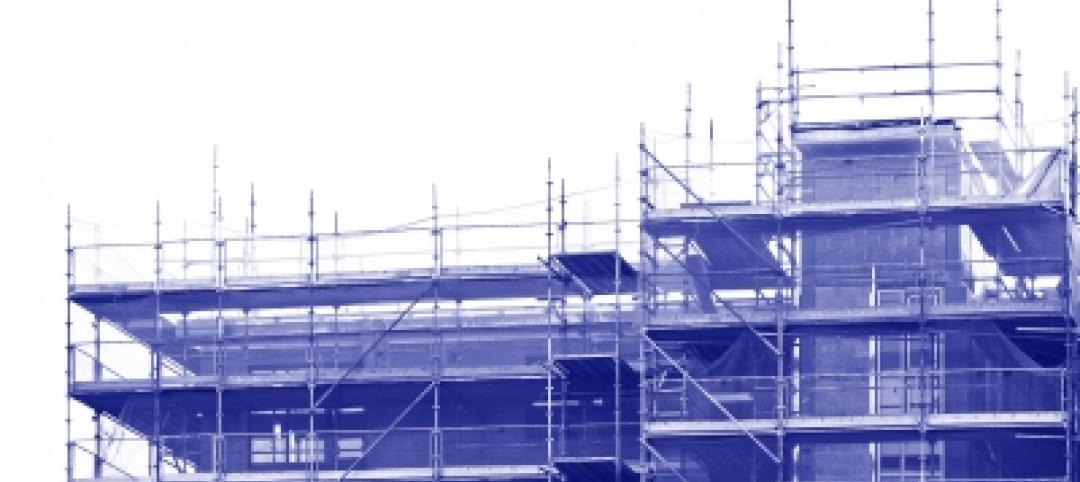New York City developers are using rooftop wind turbines in an effort to attract buyers by highlighting a building’s green credentials.
A recent example is Pearson Court Square, a 197-unit apartment building in Queens which is adorned with three turbines resembling “huge carbon-fiber strands of DNA strung around a 10-foot mast,” according to the New York Times.
“We anticipated a lot of our tenants would be drawn to something different,” Ron Moelis, principal of L&M Development, the developer of Pearson Court Square, told the Times. The developer has been using sustainable design elements such as solar panels, insulated glass, and super-efficient boilers for many years. This was the developer’s first use of wind turbines.
While conventional turbines require a steady breeze of 10 miles per hour or more, helix-shaped turbines can capture winds from any direction and at lower speeds. The New York State Energy Research and Development Authority helped pay about half the $100,000 installation cost and will study the turbines’ efficacy.
Some green advocates bemoan this use of funds, however.
“A tiny windmill on a big building is just silly — it might as well be a pinwheel,” said Russell Unger, executive director of the Urban Green Council. “It’s a lovely idea, if people want to pay for it and test it out, but as far as return on investment goes, it’s a waste compared to more insulation and efficient building systems.”
Related Stories
| Mar 5, 2014
Quebec's building code doesn't meet needs of its aging population
The issue was raised in the wake of a tragic fire at a seniors' residence in L'Isle-Verte.
| Mar 4, 2014
Massachusetts Congressional delegation asks FEMA to slow flood zone map requirements
After a recent successful challenge of the scientific methodology used to redraw the coastal high-hazard zones, the Massachusetts congressional delegation is asking federal officials to put the brakes on new flood zone maps for the Bay State.
| Mar 3, 2014
Injury-liability law responsible for higher construction insurance cost in New York
Construction contractors and developers in New York state face $3 billion more in costs and 667 more accidents per year because of a state law that holds builders solely liable for such accidents, according to a study commissioned by the New York Civil Justice Institute.
| Feb 28, 2014
GBI issues guide to help federal agencies meet sustainability mandates
The Green Building Initiative has released “The Guiding Principles Compliance for New Construction,” for federal buildings to help federal agencies meet sustainability mandates in the construction of new buildings.
| Feb 28, 2014
Steel Joist Institute standards open for review
The 2015 draft of the Steel Joist Institute’s “Single Joist Standard Specification for K-, LH-, and DLH-Series and Joist Girders” will be available for public review until May 31, 2014.
| Feb 28, 2014
Metcalf Construction wins key reversal from federal appeals court in Hawaii on military contract
Metcalf spent more than $76 million on a military construction project and sued to recoup costs.
| Feb 19, 2014
Obama Administration moves to boost fuel efficiency standards on heavy-duty vehicles
The Obama Administration wants to boost fuel efficiency of medium- and heavy-duty trucks for models made in 2019 and later.
| Feb 19, 2014
Net Positive Energy + Water is latest green certification standard
The advancement of sustainable construction has reached a new milestone with the development of Net Positive Energy+Water, a new green building certification standard that aims to improve net zero approaches to energy and water conservation.
| Feb 19, 2014
Obama’s climate resilience panel says PVs, cool roofs should be part of solution
Among the suggestions were rooftop solar energy systems and cool roofs, which could be encouraged by policies from local governments.
| Feb 19, 2014
OSHA proposes three-year postponement of crane operator certification requirement
OSHA’s proposal to postpone the compliance date for crane operator certification by three years was made official on Feb. 7 when it was published in the Federal Register.













